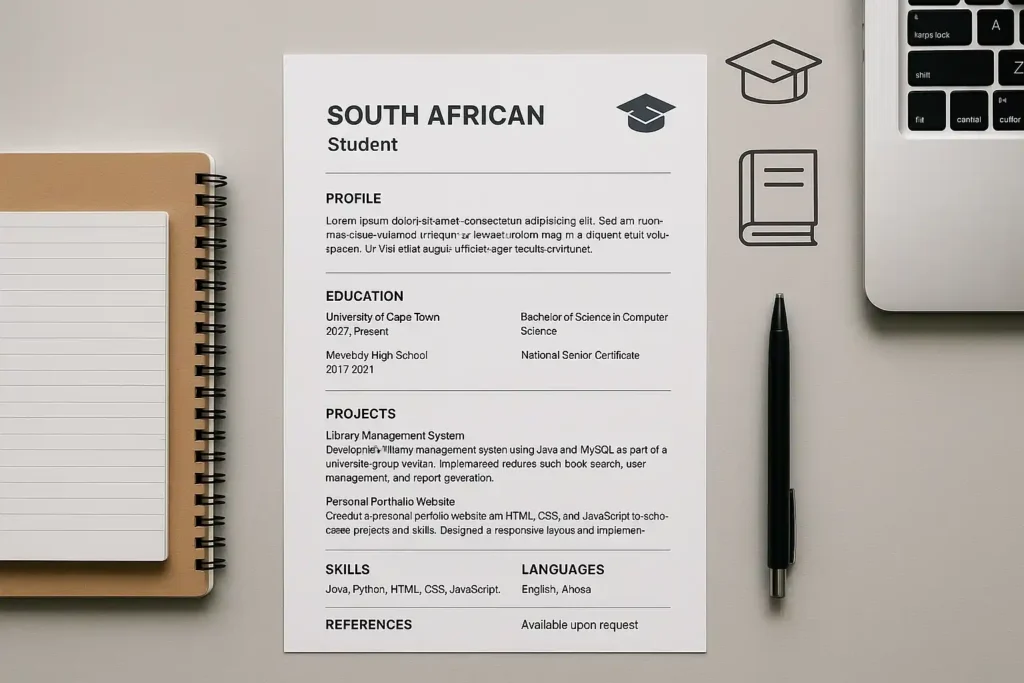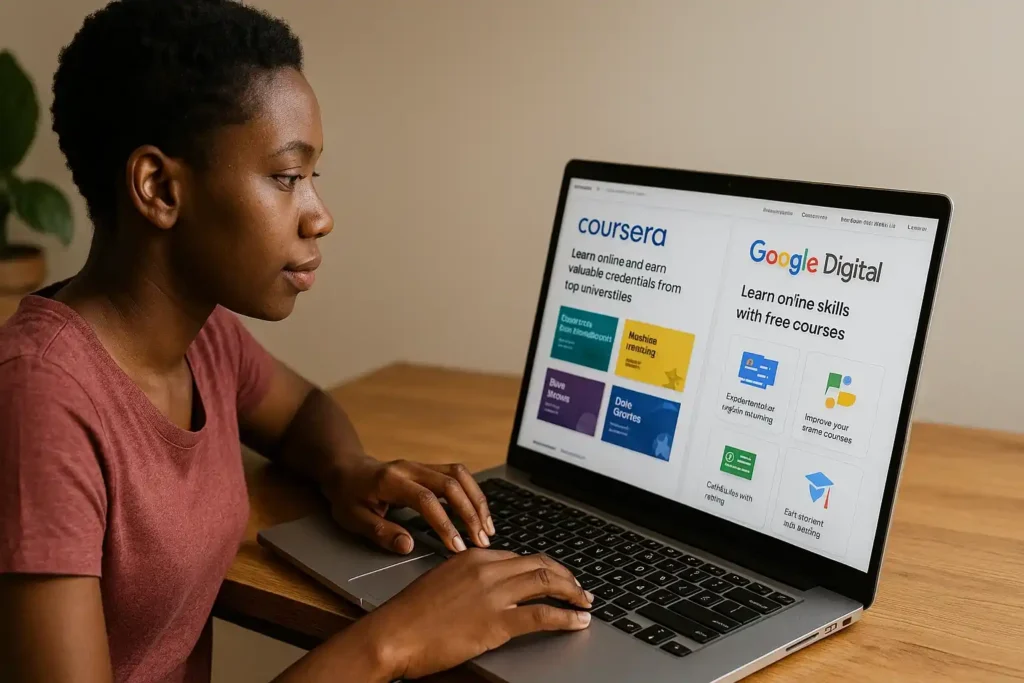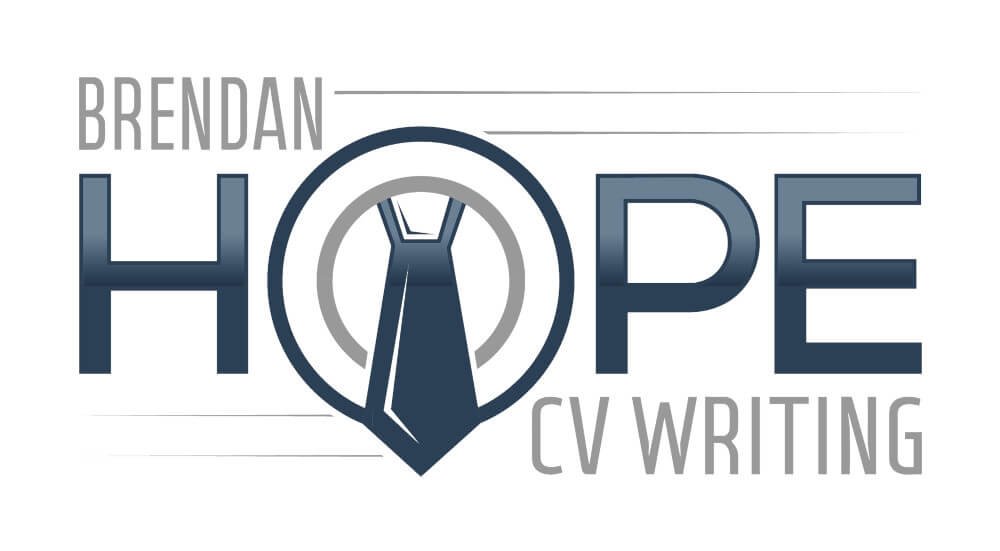Applying for your first job, internship, learnership, or bursary? You’re not alone, and you’re not expected to have decades of experience. What matters most is showing potential, motivation, and professionalism. That’s exactly what your undergraduate CV should do.
In South Africa’s competitive youth job market, your CV is often the first impression you make. Even if you’re still studying, a well-structured undergraduate CV can open doors to exciting opportunities. Whether you’re aiming for a part-time job, graduate programme, or a spot in a prestigious internship, this 2025 guide has you covered.
Let’s break down exactly what to include in your undergraduate CV South Africa, step by step. No fluff. No overwhelm. Just a clean, confident way to showcase your skills, experience, and ambition, even if you’re just getting started.
What Makes an Effective Undergraduate CV in South Africa?
Your undergraduate CV isn’t just a list of achievements, it’s a statement of readiness. South African employers, bursary panels, and programme coordinators want to see three things: potential, effort, and attitude.
They know you may not have a long job history. But they do want to know who you are, what drives you, and whether you can communicate clearly.
So what makes a great undergraduate CV in 2025?
- Clarity: Use simple structure and clean formatting
- Relevance: Tailor your CV to match the opportunity you’re applying for
- Enthusiasm: Let your motivation shine through in your profile and cover letter
- Initiative: Highlight volunteer work, societies, personal projects; even small things count
- Accuracy: Always proofread for typos, incorrect dates, or inconsistent formatting
Remember, this isn’t about perfection; it’s about presentation. With the right sections, a confident tone, and real effort, you can build a CV that stands out to South African employers and recruiters, even as a student or recent graduate.
How Long Should an Undergraduate CV Be?
Short answer: 1 to 2 pages max.
As a student or recent graduate, your CV doesn’t need to be lengthy to be impressive. The goal is to communicate clearly and efficiently, focusing on what’s relevant, not everything you’ve ever done.
Keep in mind:
- 1 page is perfect for first-year students or those with limited experience
- 2 pages work well for final-year students, interns, or postgraduates
Quality beats quantity every time. Recruiters spend an average of 6–10 seconds scanning a CV before deciding whether to keep reading. Make every word count.
What to Include in an Undergraduate CV South Africa

A strong undergraduate CV includes sections that demonstrate your academic background, transferable skills, motivation, and character. You don’t need job titles to impress, just structure and substance.
Here’s the standard structure to follow in 2025:
- Contact Information
- Personal Profile / Summary
- Education
- Work or Practical Experience
- Leadership & Extracurricular Activities
- Skills (Soft, Technical & Digital)
- Certifications (Optional but impressive)
- Achievements or Awards
- References
You don’t need every section, but the more relevant information you include (in a clean, concise way), the stronger your CV becomes. Focus on value, not volume.
Contact Information: Keep It Clean & Professional
This is the first thing recruiters see, so make sure it’s up to date, polished, and appropriate for a professional setting.
Include:
- Full name
- Phone number
- Professional email address (e.g., yourname@gmail.com)
- LinkedIn profile (if you have one)
- City & province (not your full home address)
Do NOT include:
- ID number
- Home address
- Photos (unless requested)
- Nicknames or inappropriate email handles (e.g., bossbabe123@)
Double-check for typos in your email or phone number. It’s surprising how often applicants miss opportunities simply because their contact info wasn’t correct!
Writing a Powerful Personal Profile as a Student

Your personal profile, also called a career summary or CV statement, sits just below your contact info and sets the tone for the rest of your CV. It’s your elevator pitch: short, sharp, and confidence-building.
Keep it to 3–4 lines. Here’s what to include:
- Who you are (degree and year of study)
- What you’re interested in (career focus or goals)
- Your top strengths (skills or traits)
- A short sentence about what you’re looking for (internship, learnership, part-time role, etc.)
Example:
Final-year BCom Accounting student at the University of Pretoria with strong analytical skills and a passion for financial planning. Known for detail-orientated work, time management, and a growth mindset. Eager to contribute to a fast-paced internship environment where I can apply my academic knowledge.
Experience Counts, Even If It’s Not Formal

Just because you haven’t worked in a corporate office doesn’t mean you don’t have valuable experience. Employers want to see initiative, responsibility, and transferable skills, no matter where they come from.
Include any of the following as practical experience:
- Part-time jobs (retail, waitering, admin work)
- Freelancing (design, writing, tutoring)
- Volunteering or community involvement
- Informal roles in a family business
- Learnerships, vacation work, or job shadowing
How to format:
Role title / Company or organisation / Dates
1–2 bullet points on your responsibilities and what you learned
Example:
Volunteer Tutor / BrightFuture NPO / June 2024 – Dec 2024
– Tutored Grade 10 learners in Maths and Physical Science
– Helped students improve test scores by up to 15% through structured lessons
Don’t downplay this section. Practical, hands-on experience, no matter how casual, helps paint a fuller picture of your work ethic and skills.
Leadership, Societies & Campus Activities Matter
If you’ve taken part in student groups, sports teams, committees, or community initiatives, highlight it! Employers look for candidates who show initiative, teamwork, and leadership potential.
Include activities such as:
- Class rep or student council positions
- Sports teams (especially if you were captain or organiser)
- Debate club, model UN, or entrepreneurship society
- Religious or community group involvement
- Volunteer organising roles or event planning
How to list them:
Treasurer / UCT Entrepreneurship Society / 2024
– Managed event budgets and sponsorship partnerships
– Helped organise the annual Start-Up Pitch Night attended by 150+ students
Leadership and community engagement signal to recruiters that you’re someone who shows up, takes initiative, and works well with others — critical traits in every job.
Skills to Include in an Undergraduate CV (SA Edition)
The skills section is where you highlight both your soft and technical capabilities, especially those that match the job or opportunity you’re applying for.
Group your skills into categories:
- Soft Skills: Time management, teamwork, problem-solving, communication
- Technical Skills: Microsoft Word, Excel, Canva, data entry, admin systems
- Language Skills: English (fluent), isiZulu (conversational), Afrikaans (basic)
Tip: Read the job ad carefully and match your skill list to their requirements. If they’re asking for “strong communication and admin skills,” make sure those terms appear on your CV.
This section shows employers how you work, not just what you’ve done. Keep it honest, focused, and relevant.
Digital Skills That Make You Stand Out in 2025
In 2025, even basic digital literacy can give you a major edge. Employers, from startups to government departments, expect candidates to be tech-savvy, even in entry-level roles.
Include digital tools and platforms such as:
- Microsoft Office Suite (Word, Excel, PowerPoint)
- Google Workspace (Docs, Sheets, Drive)
- Canva (for presentations, social media content)
- Zoom / Microsoft Teams (for remote meetings)
- Basic coding or data tools (e.g. HTML, Python, Excel formulas)
- Social media content management (Meta, TikTok, LinkedIn)
Why it matters: Many internships, remote jobs, and admin roles now happen partially or fully online. Showing that you can work independently using basic tech tools proves you’re ready for the real world.
Certifications & Short Courses: Add Extra Credibility

Short courses and certifications are an excellent way to boost your undergraduate CV, especially if you’re still building formal experience. They show that you take initiative, learn independently, and care about growing your skills.
Great options to include:
- Free or low-cost online courses (e.g. Coursera, Udemy, Google, LinkedIn Learning)
- University short programmes
- Industry-specific certificates (e.g. first aid, coding bootcamps, project management)
How to format:
Digital Marketing Fundamentals, Google Digital Garage, 2024
Excel for Beginners, Coursera (University of Cape Town), 2023
Pro tip: Only include certificates that are relevant to your career interests or the job you’re applying for. Quality over quantity always wins.
How to List Your Education as a South African Undergraduate
Your education is likely your strongest asset as a student, so make it easy to find and clearly formatted. Start with your most recent qualification and work backward.
Include:
- Degree or diploma title (e.g., BSc Environmental Science)
- Institution name
- Start year – expected graduation year
- Relevant modules (optional)
Example:
Bachelor of Arts in Media Studies
University of Johannesburg
2023 – Present
Relevant modules: Strategic Communication, Media Law, Content Production
Pro tip: If you’re a first-year or second-year student, include your matric results and subjects too, especially for internships or bursaries.
Certifications & Short Courses: Add Extra Credibility
Short courses and certifications are an excellent way to boost your undergraduate CV, especially if you’re still building formal experience. They show that you take initiative, learn independently, and care about growing your skills.
Great options to include:
- Free or low-cost online courses (e.g. Coursera, Udemy, Google, LinkedIn Learning)
- University short programmes
- Industry-specific certificates (e.g. first aid, coding bootcamps, project management)
How to format:
Digital Marketing Fundamentals, Google Digital Garage, 2024
Excel for Beginners, Coursera (University of Cape Town), 2023
Pro tip: Only include certificates that are relevant to your career interests or the job you’re applying for. Quality over quantity always wins.
Academic & Extracurricular Achievements
Achievements give your CV a competitive edge by proving that you don’t just participate, you excel. Even small awards show initiative, dedication, and goal-setting behaviour.
Examples to include:
- Dean’s List or academic merit awards
- Subject prizes or top results in modules
- Competitions (case studies, debates, innovation challenges)
- Leadership recognition (e.g. best society chairperson, campus awards)
- Community impact awards or acknowledgements
Example:
Top 5 Finalist, National Student Business Challenge, 2024
Awarded for innovative pitch on rural entrepreneurship and digital access
Even if it feels minor to you, include it. Achievements demonstrate drive, consistency, and a commitment to growth, traits that every employer values.
How to List References Without Work Experience
Don’t panic if you don’t have a former employer to vouch for you yet. There are still plenty of professional references you can include as a student.
Good reference options for undergraduates include:
- University lecturers or tutors
- Supervisors from volunteer work
- School teachers (if recently matriculated)
- Community or religious leaders you’ve worked with
- Mentors, coaches, or society coordinators
Format:
Ms Thandi Nkosi / Lecturer, Department of Economics, UCT
Email: thandi.nkosi@uct.ac.za | Tel: 021 555 1234
Always ask permission first. Don’t surprise someone by listing them as a referee. A short heads-up ensures they’re prepared to speak on your behalf.
Undergraduate CV Template for South Africa
To make your CV-building process easier, here’s a clean, ATS-friendly structure tailored for South African students and graduates. You can copy this layout into a Word or Google Doc and start filling in your own details.
[Your Full Name]
[Phone] | [Email] | [LinkedIn] | [City, Province]
Personal Profile
Motivated final-year [Degree] student at [University], with a passion for [career interest].
Known for [top skills or personality traits]. Seeking [type of role] to gain practical experience.
Education
[Degree] – [Institution] – [Start Year – Expected End Year]
Relevant modules: [Optional]
Experience
[Job Title / Volunteer Role] – [Company or Organisation] – [Dates]
- Bullet point describing your key responsibility or achievement
- Bullet point with action verb + impact
Leadership & Activities
[Role] – [Club/Society/Group] – [Year]
- Short bullet or description
Skills
Communication | MS Office | Canva | Teamwork | Time Management
Certifications
[Course Title] – [Provider] – [Year]
Achievements
[Award Title], [Institution], [Year]
References
Available on request / or list 1–2 with name, title, email, phone
Want a downloadable version? Click Here.
Do You Need a Cover Letter Too?
Yes, especially if you’re applying for internships, graduate programmes, bursaries, or competitive part-time jobs. A well-written cover letter lets you speak directly to the employer, explain your interest, and showcase your motivation.
Why it matters:
- Your CV shows what you’ve done. Your cover letter explains why you did it, and what you’re hoping for next.
- It lets your voice and personality come through, helping you stand out when your CV alone may feel similar to others.
- Many South African employers still value thoughtful, customised applications over generic submissions.
Tip: Always pair your undergraduate CV with a tailored cover letter unless the job ad says not to. Even if it’s not required, it’s an easy way to differentiate yourself.
How to Tailor Your Undergraduate CV for Each Job
It’s tempting to use the same CV for every opportunity, but tailored CVs perform better every time. They show the employer that you’ve read the job ad and thought about how your experience matches their needs.
Here’s how to tailor your CV quickly and effectively:
- Edit your personal profile: Mention the specific role or field you’re applying for
- Highlight relevant skills: Match keywords from the job description
- Reorder experience: Put the most relevant jobs, projects, or leadership roles first
- Adjust your achievements: Emphasise awards or results related to the job field
Example: If you’re applying for a marketing internship, shift your focus to communication, branding coursework, and social media skills, even if your most recent job was tutoring maths.
Pro tip: Save your master CV, then create a custom copy for each application. Small changes make a big difference.
Best Layout & Design Tips for Student CVs
Design isn’t just about aesthetics, it’s about readability and first impressions. In South Africa, recruiters scan CVs quickly, so yours needs to be clear, neat, and easy to follow.
Layout tips that work in 2025:
- Use consistent formatting: Same font (e.g., Arial or Calibri), size (10–12 pt), and line spacing throughout
- Stick to black and white (or light accents): Avoid bold colours or overly designed templates
- Use bold for section headers: This helps recruiters navigate quickly
- Keep margins wide enough: Aim for 1.5cm–2cm on all sides
- Break up text: Use bullet points, not paragraphs, for experience and skills
Tip: Save and send your CV as a PDF to keep formatting intact unless the job post asks for another format.
Common CV Mistakes South African Students Make
Even the best students can trip up on small CV errors, and in a competitive market, those small things matter. Avoid these common slip-ups to give yourself the best shot at landing interviews.
Top mistakes to avoid:
- Typos and bad grammar: Always proofread, or ask someone else to check for you
- Too much information: Keep it focused, no need to list every subject from Grade 10!
- Unprofessional email addresses: Create a new one if needed (e.g. firstname.lastname@gmail.com)
- Using a US-style resume template: Local recruiters expect a bit more detail
- Leaving out contactable references: Even if you’re a student, you should list someone who can vouch for your character or reliability
Pro tip: Ask yourself, “Does this CV show that I’m reliable, enthusiastic, and ready to learn?” If not, revise it until the answer is yes.
Free Tools to Help You Build a Better CV
You don’t need expensive software or a design degree to build a great student CV. Plenty of free, easy-to-use tools are available online to help you create, format, and polish your document.
Top tools to check out:
- Canva: Offers free student CV templates, just keep it clean and ATS-friendly
- Google Docs: Simple, clean layouts and auto-save functionality
- Microsoft Word Online: Use built-in templates for CVs and resumes
- Grammarly: Free grammar and spelling checker for polishing your profile and experience sections
- Jobscan: Basic tools to check if your CV is ATS-ready (especially useful if you’re applying online)
These tools help you present your experience clearly, even if you’ve never built a CV before. Just remember: templates are starting points. Always personalise your document for the job you’re applying to.
Should You Include Your High School Info?
Yes, especially if you’re in your first or second year of university. Your matric results still hold value when you have limited tertiary experience or work exposure.
Include the following:
- Name of high school
- Matric year
- Subjects (optional, but helpful for STEM or finance-related careers)
- Final result or pass type (e.g. Bachelor’s pass)
Example:
Rosebank High School, Johannesburg
Matriculated: 2022
Bachelor’s Pass with distinctions in Life Sciences and Accounting
Tip: Once you’ve completed your degree or have a few internships under your belt, you can eventually remove this section. But early on, it adds meaningful context.
How to Talk About Limited Experience Confidently
If you’re worried your CV looks “empty,” you’re not alone. Every student starts somewhere, and most employers know you’re still building your career path. The key is to reframe what experience means.
Focus on potential by:
- Highlighting class projects that reflect your strengths
- Showing initiative through societies, volunteer work, or side projects
- Listing personal development like certifications or short courses
- Adding soft skills developed through study, sport, or group assignments
Instead of saying: “I don’t have experience,”
Try: “I’ve developed key problem-solving and time management skills through academic projects and campus leadership roles.”
Confidence is key. You’re not applying as an expert, you’re applying as a student who’s ready to grow. Show your mindset, not just your milestones.
When to Use PDF vs Word Format
File format may seem like a small detail, but it matters more than you think. Submitting the wrong format can mess up your layout or get your CV rejected by online systems.
Here’s when to use each:
- Use PDF: When emailing your CV or uploading to most portals. It keeps your layout intact and looks more professional.
- Use Word (.doc or .docx): If the job post specifically asks for it, or if applying through a government or legacy system that scans text differently.
Pro tip: Always name your file clearly:
Firstname_Lastname_CV_2025.pdf
Avoid generic names like MyCV-Final-V3.docx.
Clean presentation shows attention to detail. You want recruiters focusing on your skills, not fixing your file issues.
Tips for Applying to Bursaries or Learnerships with Your CV
When applying for bursaries or learnerships in South Africa, your CV should show more than academic results – it should reflect your motivation, values, and community engagement.
Here’s what makes a great bursary/learnership CV:
- Start with your “why”: Use your personal profile to explain your passion and career goals
- Highlight your achievements: Especially academic, leadership, or community service awards
- Show involvement: Mention school, church, or university clubs, societies, or volunteer work
- Add references: A teacher or community leader reference can carry weight in these applications
- Attach a motivational letter: It’s often required – make it personal and authentic
Bonus: Save your application documents in one neat PDF bundle:
Firstname_Lastname_BursaryApp_2025.pdf
Real Examples of Student CV Sections
Need inspiration for your own CV wording? Here are some quick sample snippets for common sections in undergraduate CVs:
📄 Personal Profile:
Hardworking BSc Computer Science student passionate about solving real-world problems through technology. Skilled in Python, teamwork, and project-based learning. Seeking an internship in software development to build hands-on experience.
💼 Experience:
Part-Time Sales Assistant – Mr Price – Dec 2023 to Feb 2024
– Assisted customers and maintained stock displays
– Improved daily sales targets by up to 18% through product upselling
🏆 Achievement:
Dean’s Merit List – University of the Free State – 2024
– Recognised for academic performance in Psychology and Sociology
🛠️ Skills:
Microsoft Office | Canva | Report Writing | Team Collaboration | Time Management
Use examples like these as a reference, but always adapt to your own strengths and story!
FAQs About Undergraduate CVs in South Africa
What if I have no work experience?
Focus on your academic projects, volunteer work, societies, and skills. Everyone starts somewhere – employers know that.
Should I include my matric results?
Yes, especially if you’re still in your early years at university or applying for bursaries or internships.
Do I really need a cover letter?
Yes, unless the ad says not to. A cover letter adds personality, explains your motivation, and gives context to your CV.
Should I use a fancy CV design or colours?
No. Keep it simple, clean, and readable. Many fancy templates aren’t ATS-friendly and could hurt your chances.
Can I use the same CV for every application?
Rather not. Tailoring your CV to each opportunity (even slightly) increases your chances of getting noticed.
Conclusion: Everyone Starts Somewhere, Make It Count

Your undergraduate CV is more than just a document; it’s your first professional handshake. Even without loads of experience, you can stand out by showing motivation, potential, and professionalism.
By including the right sections, tailoring your application to the role, and avoiding common mistakes, you’ll position yourself ahead of the crowd in South Africa’s competitive student job market.
Whether you’re applying for internships, learnerships, bursaries, or part-time work, your CV is your ticket in the door. So keep learning, keep growing, and update your CV as you go.
Need help crafting a CV that gets noticed?
Get your undergraduate CV professionally written by Brendan Hope, tailored to South African employers, recruiters, and bursary panels. Start with a free CV review.

